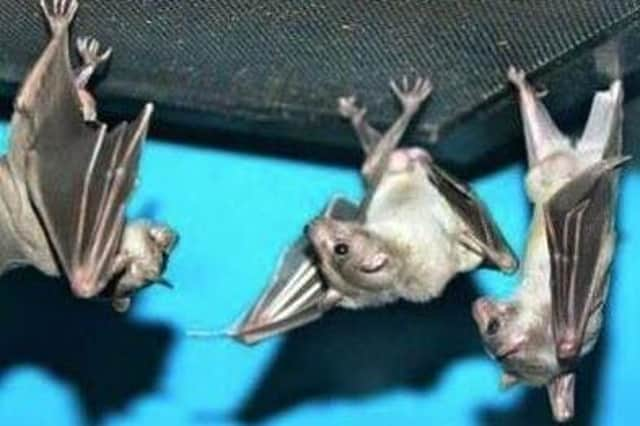Bat sounds to feature in novel Scottish music project


If the answer is yes, then you could take part in a novel Scottish musical art project.
Glasgow-based artist and composer Hanna Tuulikki is reaching out to wildlife enthusiasts and ecologists across the UK to help create her next piece of work.
Advertisement
Hide AdAdvertisement
Hide AdShe is looking for people to send in their recordings of the often inaudible high-pitched screeches used by bats for sonar navigation.


Her plan is to collect as many as possible and turn them into an original piece of music for an arts project in Arbroath.
Bats hunt at night, using echo-location to fly around and track down their prey in the dark.
The noises they make are often indiscernible by the human ear due to their ultra-high pitch, but can be captured using special bat-detectors.
The devices are used by amateurs and professionals alike to identify bat species.
Ms Tuulikki is compiling an archive of recordings to be made into a public library of sounds. From these she plans to create a unique musical composition named Echo in the Dark, which will feature in a performance event at Arbroath’s Hospitalfield, as part of its latest arts programme.
For the development of this work, the artist will tune into rhythms and frequencies beyond the human experience in a bid to explore the “interconnections of bat echolocation and embodied dance music as a model for ecological coexistence”.
The artist says she is looking forward to experimenting with the sounds for the new piece.
Advertisement
Hide AdAdvertisement
Hide Ad“I'm excited to begin to work with these hidden sounds of the more-than-human world,” she said.
“Bat echo-location calls are too high for humans to hear naturally, but by using a bat detector the ultrasonic signals can be converted into audible sound waves, allowing us to tune into their detailed rhythms, clicks and buzzes.
“Is it possible to appreciate these sounds as music?
“What might it feel like to dance to music created by these bat call rhythms?
“I'm interested to find out, exploring a space where species meet.”
Bats are the only true flying mammal.
There are more than 1,400 species found across the globe, with more still being discovered.
Bats are not blind, but at night their ears are more important than their eyes.
They make shouting sounds as they fly, with the returning echoes giving them information about what is ahead of them – including the size and shape of an insect and which way it is going.
Bats account for more than a quarter of all mammal species in the UK and around a fifth of all mammal species worldwide.
Advertisement
Hide AdAdvertisement
Hide AdThere are 17 species living and breeding in the UK, including at least nine found north of the border.
These include three types of pipistrelle, as well as the noctule, natterer’s, Daubenton’s, Leisler’s, brown long-eared and whiskered bats.
Anyone who wants to try recording their own contribution can find out how more about bats and detectors on the Bat Conservation Trust website.
A message from the Editor:
Thank you for reading this article. We’re more reliant on your support than ever as the shift in consumer habits brought about by coronavirus impacts our advertisers.
If you haven’t already, please consider supporting our trusted, fact-checked journalism by taking out a digital subscription. Visit https://www.scotsman.com/subscriptions now to sign up.
Comments
Want to join the conversation? Please or to comment on this article.